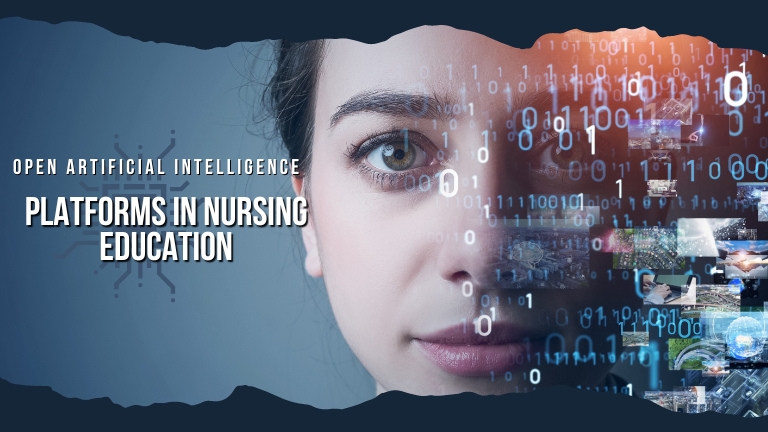In the age of artificial intelligence and advanced language models, the line between creativity and plagiarism has never been blurrier. ChatGPT, a powerful text generation tool developed by OpenAI, has revolutionized content creation by offering a quick and efficient way to rewrite text. But as more writers and creators turn to AI for assistance, a pressing question arises: is using ChatGPT to rewrite text considered plagiarism? While some argue that AI-generated content is simply a tool to enhance productivity, others raise concerns about originality and ethical boundaries. In this article, we delve into the complex relationship between technology, creativity, and intellectual property to explore whether leveraging ChatGPT crosses the line into academic dishonesty or artistic infringement.
Introduction: ChatGPT and text rewriting explained
ChatGPT has transformed the way we approach text rewriting, offering an innovative solution for content creation. Unlike traditional rewriting tools that simply replace words, ChatGPT leverages advanced AI technology to understand context and produce coherent, human-like text. This enables users to generate unique and engaging content quickly, making it a valuable tool for writers, marketers, and businesses seeking to enhance their online presence.
However, the increasing use of ChatGPT for text rewriting raises important questions about plagiarism and originality. While the AI can help in paraphrasing and restructuring content, there is a fine line between using it as a creative aid and simply copying existing material. It’s crucial for users to exercise caution and ensure that the rewritten text adds value by incorporating personal insights or interpretations. Ultimately, understanding the nuances of AI-generated content is essential in navigating ethical considerations surrounding plagiarism in today’s digital landscape.

Plagiarism Defined: Understanding the ethical implications
Plagiarism, often perceived as simply copying someone else’s work, goes beyond mere duplication. It involves the unethical appropriation of ideas, words, or expressions without proper attribution. By failing to acknowledge the original creator or source material, plagiarism undermines the foundations of academic and intellectual integrity. This act not only disrespects the efforts and rights of the content creators but also stifles innovation and hinders individual growth.
Understanding the ethical implications of plagiarism is crucial in cultivating a culture of respect for intellectual property rights. Engaging in plagiarism not only tarnishes one’s reputation but also impedes personal development by inhibiting critical thinking and creativity. In a hyper-connected digital age where content is easily accessible, it becomes paramount to uphold ethical standards and attribute credit where it is due. aspiring writers should strive to create authentic content that reflects their unique voice while citing sources responsibly to honor the contributions of others.
ChatGPT Functionality: How it rewrites text
ChatGPT’s text rewriting functionality is a powerful tool that offers endless possibilities for content creation. By utilizing advanced machine learning algorithms, ChatGPT can seamlessly rewrite text while maintaining the core message and meaning of the original content. This allows users to quickly generate new variations of their writing, making it ideal for tasks like creating multiple versions of a product description or refining blog posts to enhance SEO.
While ChatGPT’s rewriting functionality is undoubtedly convenient, questions arise regarding its implications on plagiarism. It is essential to understand that simply rephrasing existing content without adding substantial value or insights can indeed be considered plagiarism. However, when used ethically and creatively, ChatGPT can serve as a valuable aid in generating fresh content ideas and exploring different angles within the same subject matter. Ultimately, how one utilizes this tool determines whether it contributes positively to their work or crosses ethical boundaries into plagiarism.

Legal Perspective: Copyright laws and plagiarism
In the digital age, navigating the intricate landscape of copyright laws and plagiarism has become increasingly challenging. While it’s crucial to protect intellectual property rights, the lines between inspiration and imitation can often blur, especially with AI tools like ChatGPT enabling content generation at an unprecedented pace. It raises questions about whether leveraging such technology could inadvertently lead to plagiarism, as it blurs the distinction between authentic creation and automated replication.
One key aspect to consider is the nature of originality in content generated by AI platforms like ChatGPT. Despite its ability to produce seemingly unique text, there remains a debate on whether this output truly qualifies as ‘original’ work. The intricate balance between intentionality in creativity and unintentional duplication warrants a closer examination within legal frameworks. As such tools continue to evolve rapidly, it becomes imperative for lawmakers and content creators alike to stay abreast of these nuances in copyright laws in order to uphold ethical standards and protect intellectual ownership in this dynamic space.
Ethical Considerations: Balancing convenience and originality
Ethical dilemmas often arise when balancing convenience and originality in the realm of content creation. While tools like ChatGPT offer a convenient way to generate text quickly, questions regarding intellectual property rights and ethical considerations loom large. It’s essential to tread carefully when utilizing AI technology for rewriting text, as the line between efficient rephrasing and outright plagiarism can easily blur.
Furthermore, the allure of automation should not overshadow the importance of upholding ethical standards in creative work. Originality is key in producing valuable content, and relying too heavily on AI-generated text runs the risk of diluting this originality. As content creators navigate this fine line between efficiency and authenticity, it becomes imperative to prioritize integrity by ensuring that any use of AI tools aligns with ethical guidelines and respects the work of others. The blend of convenience with creativity should enhance rather than diminish the essence of what makes content truly unique and engaging.

Academic Context: Impact on student work
In the academic context, the impact of various factors on student work can be profound. From time constraints to complex assignment requirements, students often face challenges that influence the quality of their work. For instance, external pressures such as part-time jobs or personal responsibilities can affect a student’s ability to dedicate sufficient time and effort to their studies. Additionally, differences in learning styles and individual strengths can also play a role in shaping how students approach and complete their assignments.
Moreover, the level of support and resources available to students within an academic setting can significantly impact their work. Adequate access to libraries, research materials, and knowledgeable instructors can enhance the quality of student output. Conversely, limited resources may impede a student’s ability to conduct thorough research or receive proper guidance. Understanding these various influences is crucial in assessing how students engage with their academic tasks and identifying areas for improvement in educational systems.
Conclusion: The blurred line of plagiarism
In the digital age, the concept of plagiarism has taken on a new dimension with advanced AI tools like ChatGPT blurring the lines even further. While some may argue that using AI to rewrite text is merely a tool for enhancing creativity and productivity, others raise valid concerns about authenticity and originality. The question remains: where do we draw the line between innovative writing assistance and intellectual theft?
As content creation becomes increasingly automated, it is crucial for writers to navigate this ethical minefield with caution. While utilizing tools like ChatGPT can streamline the writing process and spark new ideas, it is essential to ensure that the final output reflects genuine thought and effort. Striking a balance between leveraging technology and upholding academic integrity is now more challenging than ever. Thus, as writers explore new ways to enhance their work through AI, they must also be mindful of preserving the essence of their unique voice in an era where boundaries between inspiration and imitation are becoming blurred beyond recognition.



